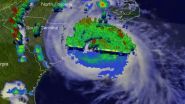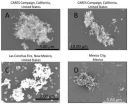(Press-News.org) Age limits on clinical trials need to be more flexible to allow more teenage cancer patients the chance to access new treatments, according to a report from the National Cancer Research Institute (NCRI), published in the Lancet Oncology.
The study, funded by the National Institute for Health Research and Teenage Cancer Trust, found that trials designed with broader age limits resulted in more teenagers and young adults going on clinical trials.
The study showed this recommendation led to a 13 per cent rise in 15-19 year old cancer patients taking part in clinical trials between 2005 and 2010 (from 24 to 37 per cent), and a five per cent rise in 20-24 year olds (from 13 to 18 per cent). Children under 14 taking part in trials rose by six per cent (from 52 to 58 per cent)*.
This rise was due to the increase in availability and access to trials for young people, increased awareness from healthcare professionals, patients and the public about research and importantly the opening of trials with broader age limits which allow older teenagers and young adults to enter trials.
Study leader Dr Lorna Fern, who co-ordinates research for the NCRI Teenage and Young Adult Clinical Studies Group and is funded by Teenage Cancer Trust said: "We know that patients often do better on trials due to the specialist care they receive. But right now too many of our young patients are needlessly falling through the gap between paediatric and adult cancer trials.
"By encouraging doctors to take into account the full age range of patients affected by individual types of cancer, we've shown that it's possible to design trials that include teenage cancer patients and, importantly, that better match the underlying biology of the disease and the people affected."
In light of this study, Cancer Research UK is one of the first major cancer funders in the UK to start asking researchers to justify age restrictions on new studies, in an effort to recruit more teenage cancer patients onto its trials.
Kate Law, Cancer Research UK's director of clinical trials, said: "Old or young, it's vital that effective treatments are being developed to tackle cancer across all age brackets. We now only accept age limits on our clinical trials if they are backed up by hard evidence, which will hopefully mean more young cancer patients get the chance to contribute to research and have the latest experimental treatments."
Simon Fuller, director of services for Teenage Cancer Trust comments: "Too many young people miss out on clinical trials and we have been working with patients, politicians, the NCRI and other organisations to increase awareness of this lack of access. Changes are critical to improving the quality of life and chances of survival for young people with cancer aged 13 to 24. We need everyone involved in the commissioning and regulating of clinical trials to work together across the UK, Europe and internationally to help save young people's lives. Next week we will be launching our own discussion paper at the 8th Teenage Cancer Trust International Conference on teenage and young adult cancer medicine."
Dr Karen Kennedy, director of the NCRI, said: "These findings show that we're gradually breaking down the barriers to allow more teenage and young adult patients to take part in cancer trials. If other cancer research funders adopt these recommendations then we have a great opportunity to help ensure more patients, both young and elderly, have access to treatments that could potentially benefit them."
INFORMATION:
For media enquiries please contact the NCRI press office on 020 3469 8300 or, out-of-hours, the duty press officer on 07050 264 059.
References
Fern L. et al. Available, accessible, aware, appropriate and acceptable: a strategy to improve participation of teenagers and young adults in cancer trials, Lancet Oncology (2014)
Notes to Editor
*The study looked at 68,275 patients aged 0-59 years, who were diagnosed with cancer between 1 April 2005 and 31 March 2010. During this six year period, trial participation among 15-19 year olds increased from 116\481 individuals (24 per cent) to 184\492 (37 per cent) and among 20-24 year olds from 88\653 individuals (13 per cent) to 129\713 individuals (18 per cent). Participation among 0-14 year olds increased from 518\1005 individuals (52 per cent) to 594\1025 individuals (58 per cent).
Concern at lack of teenage patients in cancer trials
2014-07-07
ELSE PRESS RELEASES FROM THIS DATE:
Sutures or staples? The best choice for closing a C-section
2014-07-07
(PHILADELPHIA) -- In the largest study to date comparing sutures (stitches) versus surgical staples for closing a C-section, researchers found a 57 percent decrease in wound complications in women who were sutured versus those who received staples. By carefully addressing the concerns that previous studies had raised, the research shows a clear benefit of suture for women.
"There has been ongoing debate in the field about the use of sutures versus staples," says senior author Vincenzo Berghella, M.D., director of Maternal Fetal Medicine in the Department of Obstetrics ...
Low-cost TB test means quicker, more reliable diagnosis for patients
2014-07-07
(BRYAN, Texas) — A new test for tuberculosis (TB) could dramatically improve the speed and accuracy of diagnosis for one of the world's deadliest diseases, enabling health care providers to report results to patients within minutes, according to a study published this week in the journal Angewandte Chemie.
Jeffrey Cirillo, Ph.D., professor at the Texas A&M Health Science Center College of Medicine, in collaboration with GBDbio, a Texas A&M spinoff company, and investigators at Stanford University, have identified a new chemical compound to spot the bacteria that cause ...
Platonic solids generate their 4-dimensional analogues
2014-07-07
Alicia Boole Stott, the third daughter of mathematician George Boole, is probably best known for establishing the term "polytope" for a convex solid in four dimensions. Alicia was also a long time collaborator of HSM Coxeter, one of the greatest geometers of the 20th Century.
Platonic solids are regular bodies in three dimensions, such as the cube and icosahedron, and have been known for millennia. They feature prominently in the natural world wherever geometry and symmetry are important, for instance in lattices and quasi-crystals, as well as fullerenes and viruses (see ...
Scientists find important piece in the brain tumor puzzle
2014-07-07
This news release is available in French. Scientists at the Montreal Neurological Institute and Hospital, McGill University and McGill University Health Centre have shown that a member of the protein family known as SUMO (small ubiquitin-like modifier) is a key to why tumour cells multiply uncontrollably, especially in the case of glioblastoma. The SUMO family proteins modify other proteins and the SUMOylation of proteins are critical for many cellular processes. Identifying SUMO's role in the cancer cell growth will lead to a new strategy for glioblastoma treatment. ...
NASA sees Hurricane Arthur's July fourth fireworks on US East Coast
2014-07-07
VIDEO:
On July 3, NASA's TRMM satellite passed over Arthur and saw intense bands of thunderstorms north of Arthur's well defined eye dropping rainfall at a rate of over 98.4 mm...
Click here for more information.
Hurricane Arthur made landfall in North Carolina on July 3, and today, July 4, it is bringing its own fireworks along the Mid-Atlantic and New England states. Those fireworks were in the form of "hot towers," powerful, high thunderstorms with heavy rainfall that indicate ...
Conclusion of the Lindau Nobel Laureate meeting
2014-07-07
The 64th Lindau Nobel Laureate Meeting ended with a panel discussion entitled "Science for the benefit of mankind" on Mainau Island, Lake Constance, Germany, today." 37 Nobel laureates and more than 600 selected young scientists from 80 countries had participated in the week-long meeting in the Bavarian city of Lindau since last Sunday. A boat trip to Mainau at the invitation of the State of Baden-Württemberg marked the finish of the programme which was devoted to medicine and physiology. In 1895 Alfred Nobel determined in his will that the Nobel Prizes shall be awarded ...
New optogenetic tool for controlling neuronal signalling by blue light
2014-07-07
Institute for Basic Science (IBS), the main organization of the International Science and Business Belt project in South Korea, has announced that a group of researchers, led by professor Won Do Heo, have developed a new technology in the field of optogenetics that can remotely control specific receptors by light. They have named this new technology "OptoTrk" and it has succeeded with neuronal differentiation inducement.
The most significant feature of OptoTrk technology is that it requires only light to activate neuronal functions without the need of other substances. ...
Perspective of the PandaX dark matter experiment
2014-07-07
The PandaX experiment of China, which is located in the deepest underground laboratory, has released its technical design report recently. The full article will appear in SCIENCE CHINA Physics, Mechanics & Astronomy, 2014, 57(8): 1476-1494.
The Particle and Astrophysical Xenon (PandaX) collaboration was established in 2009 and mainly supported by the Ministry of Science and Technology, the Ministry of Education in China, the Natural Science Foundation of China,and Shanghai Jiao Tong University. The experiment is suitable for both direct dark matter detection ...
New type of soot particle discovered from wildfire emissions
2014-07-07
RENO – Every year, wildfires clear millions of hectares of land and emit around 34-percent of global soot mass into the atmosphere. In certain regions, such as Southeast Asia and Russia, these fires can contribute as much as 63-percent of regional soot mass.
In a paper published in Nature Scientific Reports, a team of scientists led by Rajan Chakrabarty from Nevada's Desert Research Institute report the observation of a previously unrecognized form of soot particle, identified by the authors as "superaggregates," from wildfire emissions. These newly identified particles ...
Blocking cells' movement to stop the spread of cancer
2014-07-07
Insights into how cells move through the body could lead to innovative techniques to stop cancer cells from spreading and causing secondary tumours, according to new UCL research.
Scientists discovered that cells can change into an invasive, liquid-like state to readily navigate the narrow channels in our body. This transformation is triggered by chemical signals, which could be blocked in order to stop cancer cells from spreading.
Most cancer deaths are not due to primary tumours, but to secondary tumours in vital organs, such as the lungs or brain, caused by cells ...




